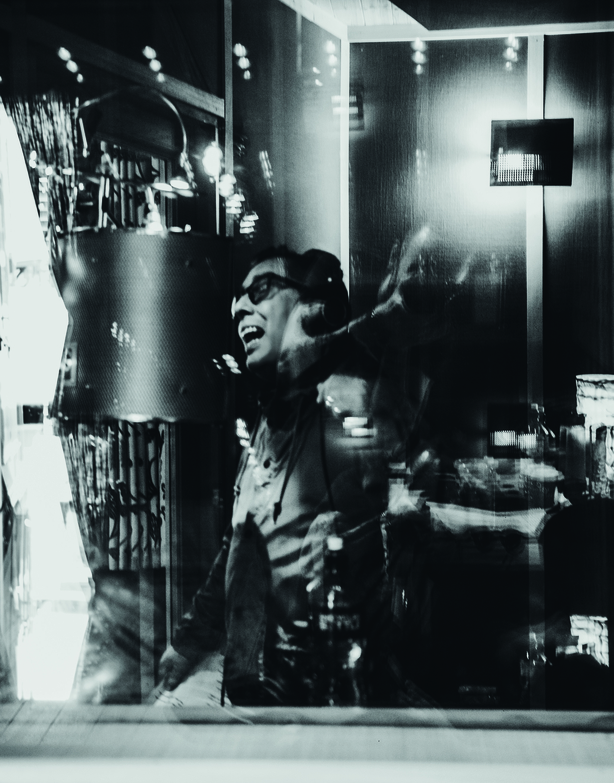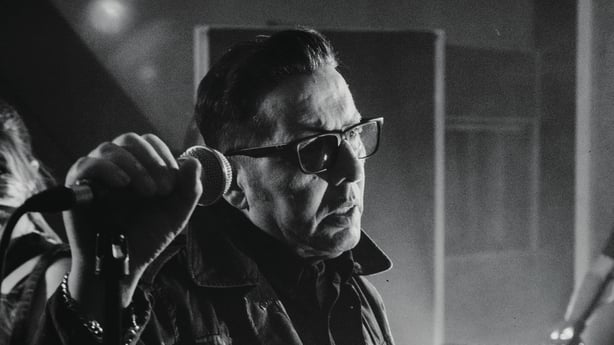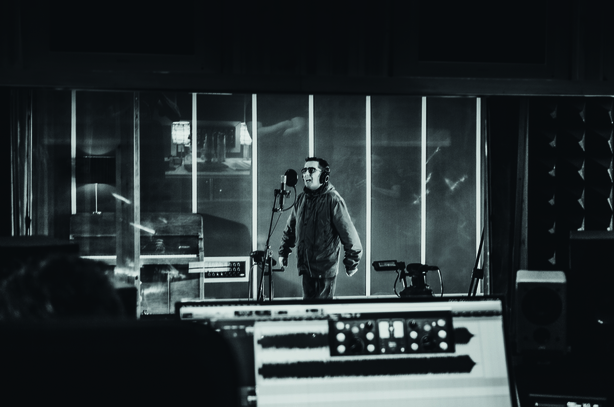Rock ‘n’ roll survivor – it’s one of the great archetypes of popular music, used to describe a range of character types. Those men and women who’ve been everywhere, done it all, not only worn the tee-shirt but featured on the front of it… and survived to tell the tale. Christy Dignam talks to Darragh McManus about his debut solo album.
Christy Dignam is one of the all-time great rock ‘n’ roll survivors. He’s enjoyed mighty highs with the immortal Aslan and endured crushing lows with band break-ups and substance abuse issues. And since 2013, the affable Dubliner has been battling incurable cancer.
But Christy is still standing – and more importantly, he’s still making music, still belting out songs in that distinctive and wonderful voice. Still wearing the tee-shirt and telling stories.
The Man Who Stayed Alive – a perfectly appropriate title – is a collection of 11 really fine tracks, co-written with, and produced by songwriter Don Mescal, which Christy sees as something of a lifelong dream realised.
"I hadn’t had a proper solo album out before this," he tells us, though there was an LP with Conor Goff during Aslan’s temporary split in the late ’80s. "But I always wanted to make a solo record as a singer, and my medical condition nearly pushed me into it: I thought, if I don’t do it now, I might not get another chance. Emotionally, I needed to do this. Then, with Covid we were all out of work, so it was an ideal time to start the process. This album has a real cohesion to it, there’s a train of thought running through it even though the songs are different."

Don Mescal had written a single for Aslan a few years ago, Too Late for Hallelujah, and Christy "always wanted to work with him again". When the pandemic kicked off last year, the stars aligned: he asked Don to work on production and writing of a Christy Dignam solo record.
Don was "the main songwriter", but the writing was also collaborative, Christy explains. "Basically, I got him to read my autobiography. He almost did a case study of my life; he’d ring and ask me about certain situations. He really got into my head. And Don’s an amazing songwriter."
Sonically, The Man Who Stayed Alive has a rootsier feel than maybe we’re used to from Aslan. Christy agrees: "I wanted to get back to that sort of rootsy feel: no trickery with the vocals, no bells and whistles. Just honest to goodness rock ‘n’ roll. Also, there’s a lot of good musicians in Ireland at the moment, but I find a sameness in the sound, and they have this whingy kind of yodel in their vocals. It pisses me off, to be honest with you!"
"So I wanted to concentrate on singing, in my own true voice. When I started off, you had people like Bowie who were proper singers – you could hear the words. That was important to me. The essence of the Bel Canto technique (which Christy studied as a young man) is that you throw off all the vocabulary you’ve picked up from other singers – the way they pronounce certain words – and sing in your own voice. I hear guys with this mid-Atlantic drawl and they come from Cabra, you know? Bel Canto strips away all that stuff and helps you be honest to yourself."

Recording, which finished recently, took about four months. They had a band in Nashville "who play on everyone’s records" to whom Don and Christy would send the songs, chord structures and notes on exactly what sound they wanted. The band would record their music, send it back and Christy’s vocals would go on top.
"The technology is amazing nowadays, you can even email songs. On Song for Kathryn, for instance, Imelda May did her vocals in London, I was here and the band was in Nashville."
He was in and out of hospital during production. "We had to fit a lot of stuff around that. The odd time I wasn’t able to make a session; physically, there were times when my condition affected recording. We started in Don’s studio in Cavan, but eventually we had to move to my kitchen. By the time I’d make the two-hour trip to Cavan, I’d no energy left to sing. But doing a lot of the vocals here at home worked out well, it gave a more intimate sound. The album is very personal, based on my experiences, so it all fits well."
He gives huge credit to the other lads in Aslan for The Man Who Stayed Alive coming to fruition: "I couldn’t have done it without the lads’ huge support. They knew it was important to me, I’ve been talking about it for years. When the pandemic came, they suggested, maybe now’s the time to do it."

Christy suffers from two types of cancer: amyloidosis and multiple myeloma. There’s no cure for either one.
"All you can do is try and manage them," Christy says. "I go into Beaumont Hospital every week to give bloods. Depending on the results, I have to go on chemotherapy. The first time I did it, I got a three-year respite. The second time, it was a year. Every time, your body starts recognising it and finding ways around it. The last chemo didn’t work at all. I’m doing it at the moment and it’s fluctuating a bit."
He was at high risk during Covid; the amyloidosis has damaged his heart, which now only works at about 2/3 capacity. His cardiologist told Christy that he wouldn’t survive the virus and needed to do everything in his power to avoid it.
"So, I was cocooned to the max," he says. "I didn’t even have the grandkids come near me at Christmas. Until I got vaccinated, I lived in absolute terror. It was horrific not being able to see my daughter and grandchildren. I ran around for years like a blue-arsed fly, wondering what life was all about."
"Finally, when I got diagnosed with cancer, I realised why I was put on this earth. Initially I got six months to live, and the only important thing to me was seeing my grandkids’ communion and confirmation – being with family, seeing them grow up. The meaning of life was there in front of me, all the time."
The Man Who Stayed Alive is available now on CD, download and streaming


